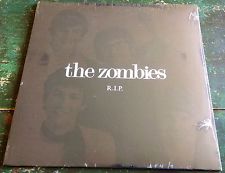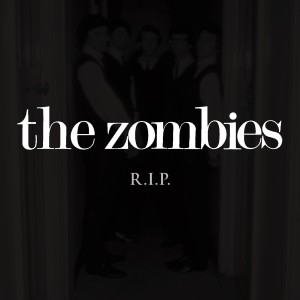With all the recent talk and writing about the return of the original Zombies, touring and performing their 1968 masterpiece Odessey & Oracle, I thought it might be nice to break down the album that would have appeared afterwards, had it been released.
Everyone knows that The Zombies had already called it a day before Columbia Records even released Odessey & Oracle; how Al Kooper championed it and cajoled the heads of Columbia to issue it (finally) and how “Time Of The Season” became a massive – but fluke – hit in 1969. Once this happened, The Zombies were in demand again but Colin Blunstone, Hugh Grundy and (the now sadly deceased) Paul Atkinson were tending to other matters. Rod Argent and Chris White took the reins and headed into the studio to record a “follow up” single for “Time Of The Season” – Chris White at the producer’s helm; Rod Argent handling keyboards and lead vocals. Joining them in the studio were Bob Henrit on drums, Jim Rodford on bass and Russ Ballard on guitar – the band now remembered as Argent. They recorded a single, the gorgeous, heartbreaking and delicate “Imagine The Swan” – and duly released it on CBS in the U.K. and the Date imprint in the U.S. (the Columbia sub-label who issued Odessey & Oracle and the prior two singles, “Butcher’s Tale”/”This Will Be Our Year” and “Time Of The Season”/”Friends Of Mine”). It didn’t go anywhere, unfortunately, but this group proceeded to record a total of six new songs: the aforementioned “Imagine The Swan”, its B-side, the soulful instrumental “Conversation Off Floral Street”, the haunting and majestic epic “Girl Help Me”, the sad and wistful “Smokey Day”, the rollicking “She Loves The Way They Love Her” and the laid-back “I Could Spend The Day” – all great songs taken on their own merits.
The idea was to couple them along with some previously unreleased material by the original line-up that had been (criminally) languishing in the Decca Records vaults in the U.K. with some cleaning up and embellishments. Dusted off were “If It Don’t Work Out”, “I’ll Call You Mine” (which had, in fact, been issued as the B-side to “Time Of The Season” in England), “I’ll Keep Trying”, “I Know She Will”, “Walking In The Sun” (which dated back to 1964) and the incredible “Don’t Cry For Me”. An interesting and highly believable combination of songs – 6 with Argent as lead singer and 6 with Colin Blunstone’s remarkable voice.
One more “taster” single was released by Date in the U.S. and Canada – and disappeared without a trace – “If It Don’t Work Out” coupled with “Don’t Cry For Me” (a bad move by Date, as “Don’t Cry For Me” ranks up there in the Top 5 best songs The Zombies ever committed to tape – I actually put it at #2, only behind “Tell Her No” but that’s my personal preference!). Thus, the album, tentative titled R.I.P. was permanently shelved and The Zombies’ name was consigned to memory as shortly thereafter, Argent made their triumphant debut.
Many of these songs have circulated over the years – I first locked into most of them (save for “Smokey Day” and “I’ll Keep Trying”) via a 1988 compilation called Meet The Zombies; many people were first turned on to these “lost” tracks through the (now) seminal 2-LP set on Epic from 1974, Time Of The Zombies and like all great albums that never were, there have been various versions of what this album would have been shaped as, if it had actually been released.
Fast forward to 2014: the good people at Varese Sarabande (the American label who reissued Odessey & Oracle) released R.I.P. in its intended running order on vinyl for Record Store Day; shortly thereafter, the CD edition appeared. With detailed and informative liner notes by the always-incredible and brilliant Andrew Sandoval and reissue production by Cary Mansfield and Andrew Sandoval, you have a seamless collection of the 12 songs, sounding better and stronger than ever, plus mono mixes that had previously been unreleased.
This isn’t some “only for hardcore fans” thing, either. This album works as a whole; the songs I’ve known have lived with me for over a quarter century as I’m sure they had when others heard them back in ’74. It shows the spectrum of The Zombies’ collective talent; the songwriting marvels of Argent and White and the quality and care that went into each song. Most fascinating are the “newer” songs from late ’68 because they’re the most stripped down. And yet, it works as a fluid whole.
Thus, don’t take my word for it – just get a copy of R.I.P. and play it – I know that once you’ve heard this album, you’ll be returning to it again and again and again. It’s The Zombies, so you know it’s just that good.
ESSENTIAL LISTENING
https://youtu.be/-J2YTExCv5w







Comments